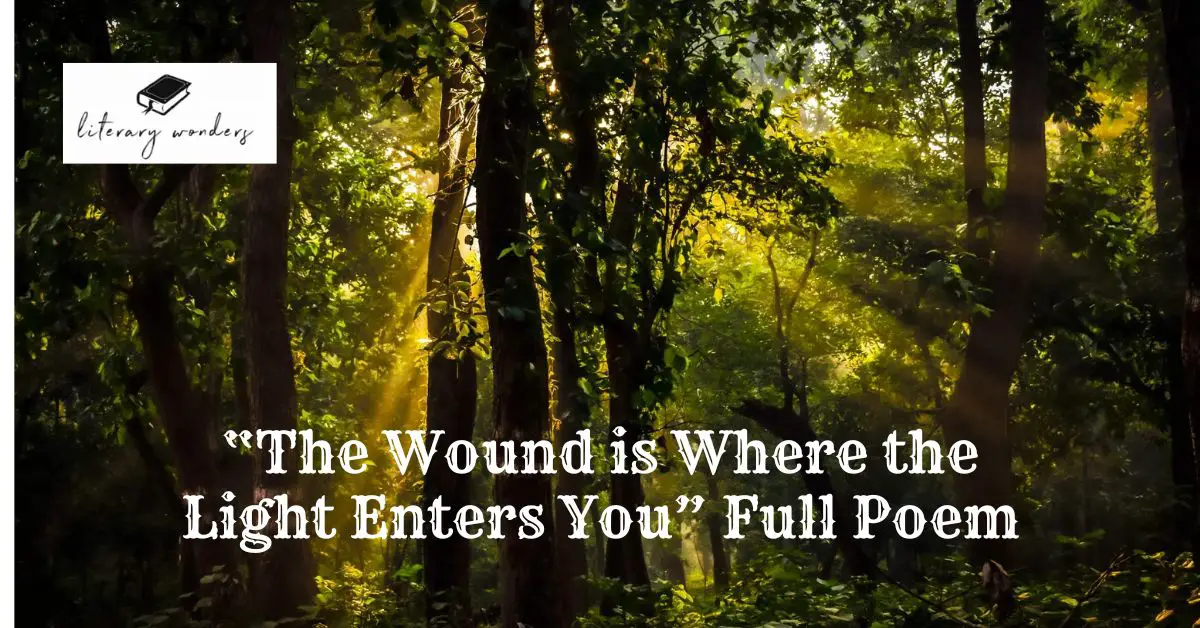- Introduction
Many spiritual scholars and writers use the metaphor of light and reflection in their writings and sayings, giving various examples of illuminated and virtuous people. Their writings beautifully defined ways how we can trace the light that connect us to our creator. Omid Saifi has also used these metaphors in his poem to emphasize the point that the wound created by hurt connects us to the light of God in his poem, “Where the Light Enters You.” The analysis of, the wound is where the light enters you full poem is as follows.
For full poem please visit: https://onbeing.org/blog/where-the-light-enters-you/
“Where the Light Enters You”, Analysis
This beautiful poem illustrates how the Light of God enters our wounded souls. Just like the ordinary Light enters the broken window, the Light of God makes its way to our broken hearts. It illuminates our dark spirits and heals us. He further states that every human faces trouble and grave losses in life. Unfortunately, some accidents make us stand at the edge of destruction. Just then, the light from the creator traces our way and redirects us toward the purpose of our life.
The poet refers to the saying of a great Islamic scholar, Jalāl ad-Dīn Mohammad Rūmī, who aptly said that the wound is where the Light enters you. He relates this quote to his life as when he peeps into his heart, he finds scars piled on scars. He recalls all the great sufferings and miseries he endured in life and how he survived all odds. To him, all those troubles that cause harm provided him a way to look ahead in life. Those wounds, injuries, and healings incorporated in shaping a better life.
Conclusion
It is well known that we tend to remember our creator when we are in trouble or in deep pain. When life runs on our desired path, one hardly turns to pray, but the minute things get devastating, one automatically turns toward God to get relief. In the time of pain, one turns inward, trying to make sense of his troubles, and finding out ways to deal with the present suffering.
So, in Rumi’s words, wounds, sufferings and pain connects us with our inner selves, which ultimately becomes the source of enlightenment in our lives. It turns our way toward spiritual practices, which we usually ignore during our good time. In other words, we find the true meaning our life during the trying times. Otherwise, we cast aside the true meanings of our existence. We normally forget that no matter how far we go, the one whom we all belong will ultimately lead us to the righteous pass. He will test us, makes us experience the bitter taste of losing until we learn to believe in his mighty power.
See Also:
What is the main similarity between “Fog” and Frost’s poem “Mending Wall”?

